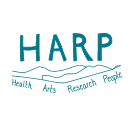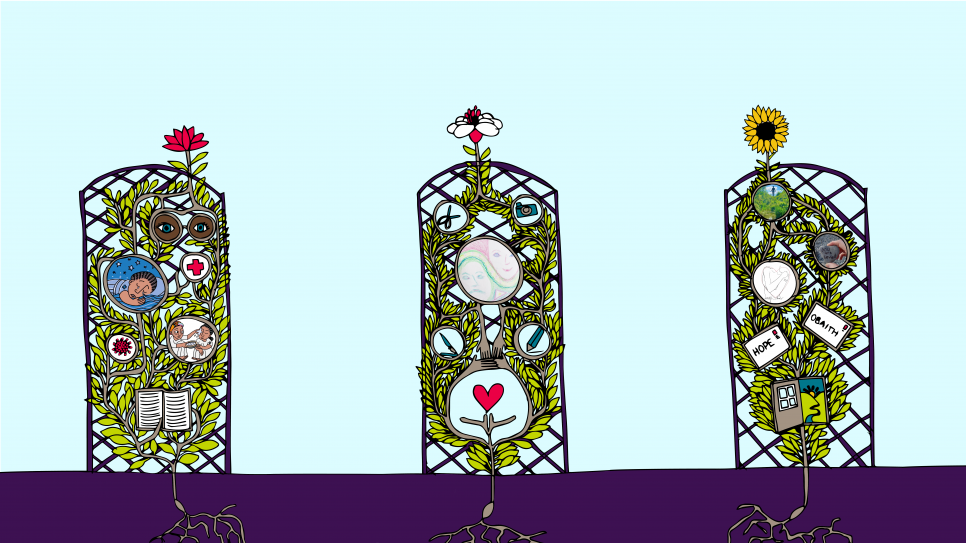In the face of COVID-19 we knew new ideas and approaches in arts and health were needed.
Delivered in 2020-21, the HARP Seed (research and development) programme was about collaborating to generate - or ‘seed’ - those initial great ideas and innovate at pace.
We were aiming to learn more about how the arts could help health and care systems with their biggest challenges during Covid-19.
We worked with health organisations to identify three challenges that mattered to them. They were paired with six artists (two per team) to work with to generate and develop new creative ideas to help them meet their challenges.
Who were the health organisations, and what were their challenges for HARP Seed?
We worked with three teams on the following health and care challenges:
Health Education and Improvement Wales, Ali Goolyad and Eric Ngalle Charles: Telling the story of Black healthcare workers during the pandemic
New Pathways, Jain Boon and Matilda Tonkin- Wells: building the resilience of rape and sexual abuse survivors across Wales
Denbighshire County Council, Steffan Donnelly and Mari Gwent: Supporting front-line care staff across Denbighshire county to manage the stresses of the Covid-19 pandemic
After the teams were formed, they met regularly through webinars and meetings, supported by a HARP Challenge Coach and the Y Lab Research Fellow.
At these sessions we took the teams through a design process of setting goals, mapping access points and assets, before designing, testing and evaluating new creative activities to meet their goals.
This built on the work of the HARP Sprint in summer 2020 and was facilitated in partnership with Nesta’s People Powered Results team, who focus on structured innovation programmes that support inclusive, collaborative and rapid change within complex systems such as healthcare.
Since this programme was also a research project, we worked with all projects to observe and measure the outcomes and impact of the programme, both on participants and organisations.
We know that collaborative innovation leads to better ideas
We know that collaborative innovation leads to better ideas. The safe and supportive space of the programme allowed the teams to approach their challenge by drawing on skills, knowledge and networks from across the Seed teams to get the very best outcome for their organisations and their people.
Funding
Grants of £3,000 were made to the artists on the challenge teams. Additional seed funding for health places to commission artists and test ideas once they were developed was also made available.
What happened?
All three teams successfully tested creative projects, with promising results.
This work was needed: Seed went into difficult spaces where support was not always reaching people. Through HARP Seed, we learned that the arts can complement, improve and enrich healthcare services in unique and insightful ways. This can help people have better experiences of health interactions, have their voice heard and seek much-needed support.
We could see in Seed that innovation worked best when artists and health partners were ready to listen to each other and celebrate their differences. For investors and health and care leaders to find new solutions where it’s most difficult, they might consider what new perspectives and creativity can offer.
HARP Seed delivery team:
Rosie Dow, programme manager, Nesta
Charlene Stagon, senior consultant, People Powered Results
Jessica Clark, programme coordinator, Nesta
Sofia Vougioukalou, research fellow, Y Lab (Cardiff University
Discover the HARP team’s reflections on the Seed programme by downloading the following article...

